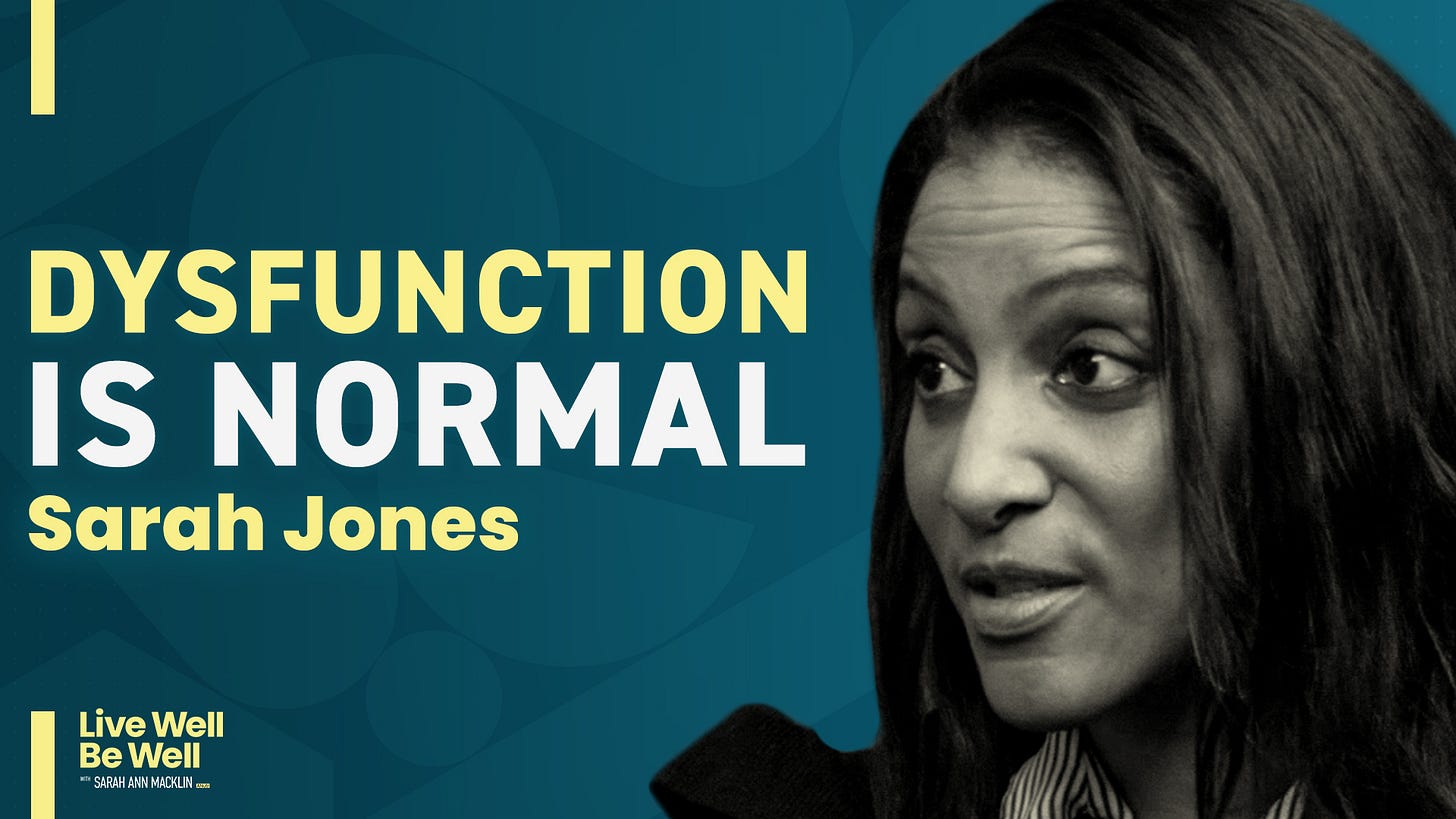The Parts of You That Want to Be Heard
Tony Award–winner Sarah Jones introduces IFS — the therapy model that says you’re not one self, but many.
I travelled to Marrakech to spend the final days of 2024 and welcome in the new year. While I was there, I met an American woman at the retreat who introduced me to something I’d never heard of before: Internal Family Systems, or IFS.
Within minutes of her explaining it, I was hooked. It was like someone had handed me a map of the hidden parts of myself — the ones that show up quietly (or loudly) but rarely get seen.
Fast forward a few months to TED in Vancouver. I was scrolling through the attendee list when I came across Sarah Jones — Tony Award–winning playwright and performer. I’d long admired her, but I had no idea she had a deep connection to IFS. On stage, she uses it not just as a framework, but as a way of embodying the many voices within us all.
There’s a question that’s stayed with me ever since recording this week’s episode with her:
What if there’s nothing wrong with you — only parts of you that haven’t yet been heard?
Sarah doesn’t just perform characters — she listens to them, especially the ones inside herself. In our conversation, she introduces us to IFS, a therapeutic model that sees us not as a single self, but as a collection of inner “parts”: the perfectionist, the overachiever, the inner critic, the people-pleaser, the wounded child.
Rather than silencing these parts, IFS invites us to be curious. To understand how they’ve tried to protect us, even if their strategies don’t always serve us now.
We spoke about identity, performance, addiction, and the unspoken pressure to be "good" or "enough." But also about joy. About how play can be a path back to wholeness. And about the healing that happens when we build a relationship with every version of who we've been.
It’s not just what Sarah says about IFS — it’s how she lives it. And by the end of this episode, you might start seeing your parts a little more clearly, too.
Connect with Sarah Jones:
Website: sarahjonesonline.com
Instagram: @yesimsarahjones
P.S. Sarah’s upcoming tour, America, Who Hurt You? Is a live exploration of identity, politics, healing, and yes, disco balls. You won’t want to miss it if you’re in New York this week! Buy tickets here.
My personal insights and takeaways
1. The Beauty of Multiplicity
“I have so many parts to me, and I think that I felt like there was something wrong with that for so long.”
Reflection: Many of us feel fragmented, as though we need to be one unified version of ourselves. But healing often begins when we embrace our inner multiplicity and give ourselves permission to be more than one thing.
2. The Roots of Conditional Love
“Make sure you look good. Make sure you come home with the right grades and don’t embarrass us.”
Reflection: Conditional love teaches us to perform rather than belong. Recognising these early patterns allows us to move toward love that accepts rather than evaluates.
3. The Cost of Self-Abandonment
“I didn’t realise I was abandoning myself a lot of the time.”
Reflection: Shape-shifting to meet others’ expectations can lead us far from our true selves. The journey back often begins with simply noticing when we’ve left ourselves behind.
4. Your True Self Is Not Your Résumé
“Who am I? Not my résumé, not my CV.”
Reflection: We often define ourselves by our roles, titles, or achievements — but identity goes deeper. The question “Who am I?” can guide us inward, toward authenticity rather than performance.
5. There’s Nothing Wrong With You
“What was driving me… was all around this idea of ‘what’s wrong with me?’”
Reflection: So many of us pursue self-improvement from a place of perceived brokenness. What if we started from the belief that we are fundamentally okay — and grew from there?
6. Thanking, Not Fighting, Our Anxiety
“What if instead you could say, ‘Wow, this anxiety has needed to be here for me.’”
Reflection: Reframing anxiety as a protective part of us — rather than an enemy — helps us soften toward ourselves and begin a more compassionate inner dialogue.
7. Compassion Is the Starting Point
“You are human. And you are the result of a lot of input.”
Reflection: Self-compassion emerges when we recognize that we are shaped by biology, history, and environment. We can stop judging ourselves for outcomes we didn’t fully choose.
8. All Parts Are Welcome
“Do not kill any part of yourself. Everything is here because it helped you survive.”
Reflection: IFS teaches us that even our so-called negative traits have roots in protection. When we welcome these parts instead of rejecting them, healing becomes possible.
9. The Addiction to Achievement
“I could win the highest… and still feel empty.”
Reflection: Achievement can mask deeper wounds. If we rely on external success for inner validation, we may always feel like we’re falling short — even when we’re at the top.
10. You Make Sense
“There’s nothing wrong with you. You are having a normal response to an abnormal world.”
Reflection: This is a radical, tender truth. So many of our struggles are adaptive responses to hardship. When we realise this, shame begins to loosen its grip.
I’d love to hear what stayed with you after this week’s conversation with Sarah — and whether it stirred any new reflections, questions, or parts of yourself you hadn’t met before. These kinds of episodes often open unexpected doors, and it’s always a privilege to hear how they land with you.





